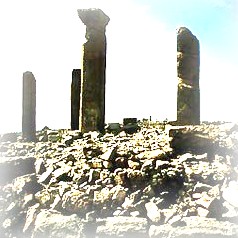www.kurbaria | home
Introduction | General | Land | Health | Travel | Accommodation | Ressorts and Excusion | Geograph and Climatic | social and business profile | history | Government | Embassies and Consulates | over view | Duty Free/ PublicHolidays
history

Prior to the European colonial period, a number of different peoples occupied present-day Eritrea, though none of them controlled the entire area. Some of these people established powerful kingdoms. Among them where the Axumite kingdom (1st-9th century AD), the seven Beja’s kingdom (8th-13th century AD) and the Bellou kingdom (13th-16th century AD).
Over the centuries, Eritrea's strategic location on trade road between the Nile River valley, the Red Sea, and central Ethiopia made it the object of numerous invasions by external powers seeking to control trade along the coast and in the interior. These include the Ottoman Turks in the 16th century, Egypt in the 19th century. Eritrea was gradually united under Italian rule and became an Italian colony on the 1st of January 1890.
Eritrea then became a province of Italian East Africa (Eritrea, Ethiopia and Italian Somaliland) from 1936 until Italy's defeat in World War II. Eritrea was administered by Britain from 1941 to 1952, then after the United Nations decide against the will of the Eritrean people to federate Eritrea with Ethiopia under an arrangement in which Eritrea retained control over local affaires.

In 1961, armed struggle for independence began after years of peaceful protest against Ethiopian violations of Eritrean democratic rights and autonomy produced no improvement in a deteriorating situation. As many as 100,000 civilian Eritreans died during the long struggle led by the Eritrean People's Liberation Front (EPLF), while another 700,000 fled, mostly to Sudan, but also to Saudi Arabia, Europe and North America. In May 1991, the Ethiopian government was defeated, and the EPLF took over the control of Eritrea.
When the UN-supervised referendum was held in April 1993 more than 99 % of Eritrean voters chose independence, which was formally declared on May 24th, 1993. On May 28th, the country was admitted to full membership in the United Nations as the 182nd member nation. It became a full member of the Organization of African Unity (OAU), of the regional Intergovernmental Authority on Development (IGAD), and of the ACP-EU, respectively on June 2nd, September 7th and October 22nd, 1993.